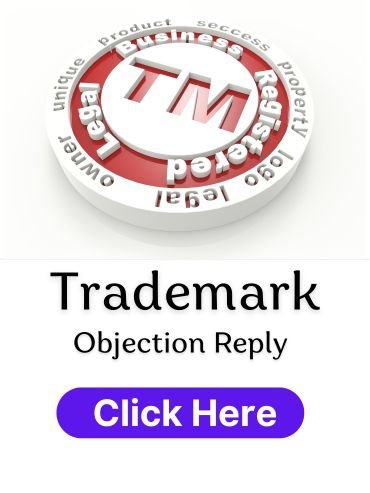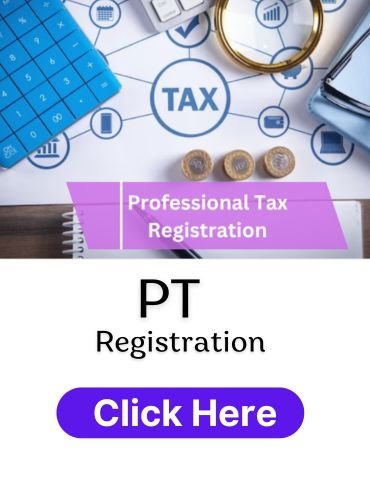Trademark Registration
Original price was: ₹7,500.00.₹5,000.00Current price is: ₹5,000.00.
Documents Required:
- Trademark Name
- Business Category
- KYC
- Address Proof
- Contact Details
*Government Fees will be paid by client separately*
*18% GST will be Applicable*
*For better experience & guidance we recommend you to talk with our experts*
Description
Trademark Registration
Introduction:
Trademark registration is a crucial step for businesses looking to protect their brand identity and intellectual property. In this guide, we will delve into the intricacies of trademark registration, covering its definition, importance, process, requirements, and benefits.
1. What is a Trademark?
– Definition: A trademark is a recognizable sign, design, expression, or symbol that distinguishes products or services of a particular source from those of others.
– Types of trademarks: This includes logos, brand names, slogans, symbols, sounds, and even scents that serve as identifiers for goods or services.
2. Importance of Trademark Registration:
– Legal protection: Registration provides legal ownership and exclusive rights to use the trademark in commerce, preventing others from using it without permission.
– Brand recognition: A registered trademark enhances brand recognition and distinguishes products or services in the marketplace, building consumer trust and loyalty.
– Asset value: Trademarks can be valuable assets for businesses, contributing to brand reputation and increasing market share.
3. Process of Trademark Registration:
– Conduct a trademark search: Before filing an application, it’s crucial to conduct a comprehensive search to ensure the chosen trademark is not already in use by another party.
– Prepare and file the application: Submit a trademark application to the appropriate intellectual property office, providing necessary information such as the trademark itself, goods or services associated with it, and the owner’s details.
– Examination: The trademark office will examine the application for compliance with legal requirements and potential conflicts with existing trademarks.
– Publication: If the application meets all requirements, it will be published in the official gazette to allow third parties to oppose the registration if they believe it infringes on their rights.
– Registration: Upon successful completion of the examination period and resolution of any oppositions, the trademark will be registered, granting the owner exclusive rights to use it.
4. Requirements for Trademark Registration:
– Distinctiveness: The trademark must be distinctive and capable of identifying the source of goods or services.
– Non-descriptiveness: Trademarks that are merely descriptive of the goods or services they represent are generally not eligible for registration.
– Lawful use: The trademark must not be immoral, deceptive, or likely to cause confusion among consumers.
– Proper representation: The trademark application must include a clear representation of the mark, whether it’s a word, logo, or combination thereof.
5. Benefits of Trademark Registration:
– Exclusive rights: Registration provides exclusive rights to use the trademark in connection with the specified goods or services, protecting against infringement.
– Legal recourse: Registered trademarks enjoy legal protection under trademark laws, allowing owners to enforce their rights and seek remedies against infringers.
– Brand reputation: A registered trademark enhances brand reputation and credibility, signaling to consumers that products or services meet certain standards of quality and reliability.
Conclusion:
Trademark registration is a vital step for businesses to protect their brand identity, enhance market competitiveness, and safeguard their intellectual property rights. By understanding the process, requirements, and benefits of trademark registration, businesses can effectively manage and protect their valuable assets in the marketplace.
10 FAQs About Trademark Registration
- What is a trademark?
- A trademark is a distinctive sign, symbol, word, or phrase used to identify and distinguish the goods or services of one seller from those of others in the marketplace.
- Why is trademark registration important?
- Trademark registration provides legal protection and exclusive rights to use the trademark, helping businesses safeguard their brand identity, prevent infringement, and build consumer trust.
- What can be trademarked?
- Logos, brand names, slogans, symbols, sounds, and even scents can be trademarked if they are capable of distinguishing goods or services and are not already in use by others.
- How long does trademark registration last?
- Trademark registration typically lasts for 10 years, but it can be renewed indefinitely as long as the trademark is still in use and the renewal fees are paid.
- Can I trademark a common word or phrase?
- Yes, a common word or phrase can be trademarked if it is used in a unique way that distinguishes it from others in the same industry and if it meets the requirements for distinctiveness.
- Do I need a trademark attorney to file for registration?
- While it’s not required to hire a trademark attorney, it’s highly recommended, especially for complex cases. An attorney can provide valuable guidance, conduct trademark searches, and ensure the application meets all legal requirements.
- What is the difference between ™ and ® symbols?
- The ™ symbol is used to indicate that a trademark is being claimed, even if it’s not yet registered. The ® symbol, on the other hand, signifies that the trademark has been registered with the appropriate intellectual property office.
- Can I trademark my name?
- Yes, individuals can trademark their names if they are used in connection with goods or services in a distinctive manner that distinguishes them from others with the same name.
- What happens if someone infringes on my trademark?
- If someone infringes on your trademark, you have the legal right to take action against them, including sending cease and desist letters, initiating legal proceedings, and seeking damages for any harm caused to your brand.
- Can trademarks be transferred or licensed?
- Yes, trademarks can be transferred (assigned) or licensed to other parties, allowing them to use the trademark under certain conditions and for specific purposes while maintaining the owner’s rights and control over the trademark.
PROCESS OF WORK
- Documentation
- Verification
- Work Started
- Client Confirmation
- Modification and Confirmation
- Application Filed
- Government Approval / Tax Payment
- Work Completed
- All Document shared to Client On Mail and WhatsApp
For More Information : https://taxgyany.com/product/trademark-registration/





Reviews
There are no reviews yet.